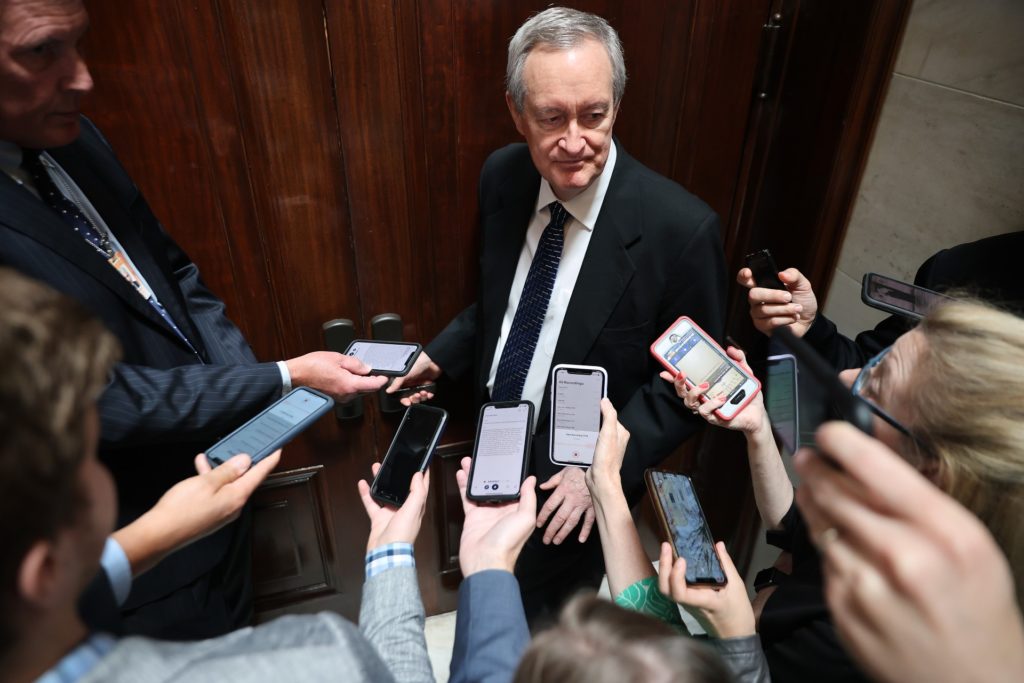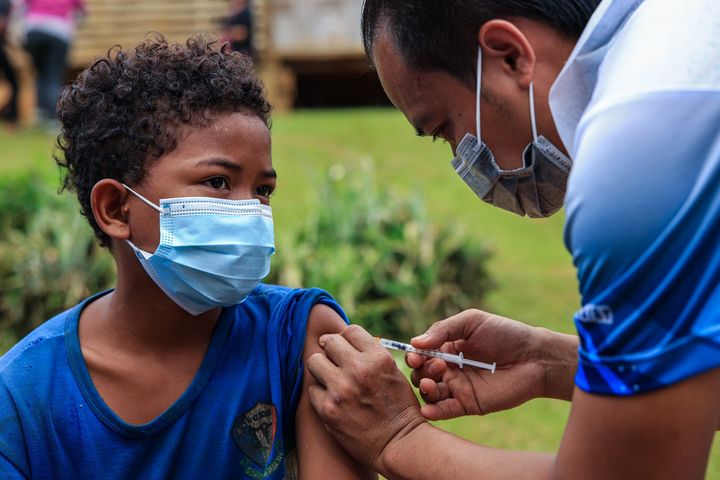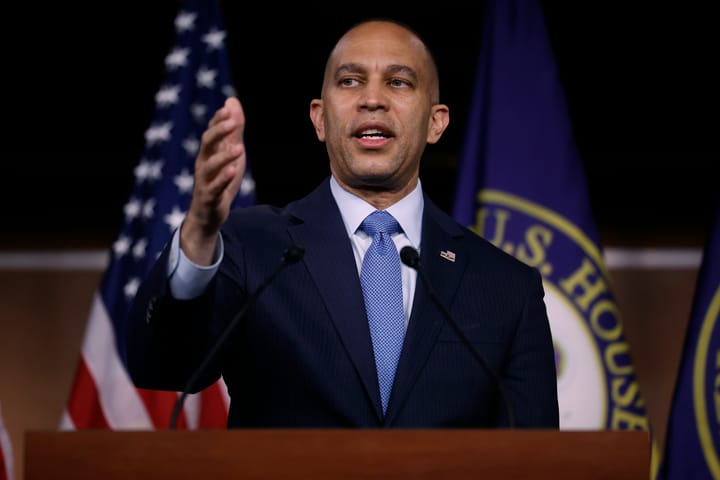In October 2020, India and South Africa issued a landmark proposal at the World Trade Organization that parts of its Trade-Related Aspects of Intellectual Property Rights (TRIPS) Agreement be waived during the pandemic so that the intellectual property behind Covid-19 treatments could be shared freely to scale up production of life-saving vaccines.
The Biden administration eventually stated its support for a TRIPS waiver in early May, but has since stood passively by, declining to advance the proposal in recent WTO meetings. Covid-19 vaccine recipes and technologies of treatments like Moderna’s, developed with the co-participation of the National Institute of Health, have still not been shared with other countries, and in the past few months the Omicron variant has emerged and spread while vaccinations rates remain low in many parts of the world.
The Biden administration’s statement in favor of a TRIPS waiver received immediate pushback from Republicans in Congress. On May 20, Sen. Mike Crapo (R-Idaho), the ranking member of the Committee on Finance, which has jurisdiction over reciprocal trade agreements, filed an amendment that sought to make it harder for the U.S. to agree to waive the TRIPS Agreement for Covid-19 vaccines.
The amendment would have required an evaluation process among U.S. departments and congressional approval for any TRIPS waiver, seeking assurances it would not extend to Russia or China, which it posed as threats to U.S. intellectual property. “I am concerned the Administration did not—because it could not—provide any evidentiary support for its claim that a waiver would facilitate access,” Crapo said.
Over 100 countries have joined in support of the proposed TRIPS Agreement waiver introduced on Oct. 2, 2020. About 73% of Covid-19 vaccine doses have gone to people in high- and upper-middle-income countries.
The pharmaceutical industry stridently opposes the waiver, with top lobbying groups PhRMA warning such a move would “compromise safety” and BIO calling it a “dangerous precedent” that would “delay the equitable delivery of needed COVID vaccines to people around the globe.”
A report from the Congressional Research Service states that if the WTO were to adopt a TRIPS waiver, it would not change its members’ domestic IP protections automatically—each country would still have to decide whether or how to change their laws in order to implement the waiver.
The Crapo amendment was co-sponsored by 17 Republican senators, including Mitt Romney of Utah, Richard Burr of North Carolina, and John Cornyn of Texas, who are among the top recipients of campaign contributions from the pharmaceutical and health products industry to U.S. senators, according to OpenSecrets.
The 18 GOP senators have received, on average, nearly twice as much in pharmaceutical and health products campaign donations over their careers as have the 32 GOP senators who did not co-sponsor it, according to a Sludge review of OpenSecrets data. The signers have received an average of $708,442 in contributions from the pharmaceuticals and health products industry, 1.9 times more than the $372,000 average for non-signers.

Sen. Crapo has raised nearly $714,000 from the pharmaceuticals and health products industry, putting him 13th among current Republican senators. His amendment was co-sponsored by other large recipients of drugmaker donations, including retiring Pat Toomey of Pennsylvania with nearly $875,000, and Todd Young of Indiana, with over $745,000. The fourth-term Crapo, his state’s senior senator, filed for reelection last month, though he has not officially announced his intention to run. He was endorsed by former President Trump earlier this year, before he voted in favor of the bipartisan infrastructure bill that Trump slammed.
On May 25, Crapo’s amendment received 53 yeas to 46 nays, but did not advance because it needed 60 votes to pass. The vote was largely party-line, with four Democratic-aligned senators joining the Republicans: Democrats Mark Kelly and Kyrsten Sinema of Arizona, Joe Manchin of West Virginia, and Independent Angus King of Maine, who caucuses with the Democrats. John Kennedy of Louisiana, who did not join the Crapo amendment, did not vote. The first-term Kennedy, who is running for re-election next year, has received a relatively low $136,527 in contributions from the pharmaceutical industry.
Republican Sen. Thom Tillis has sent multiple letters to U.S. Trade Representative Katherine Tai expressing his concerns about the TRIPS waiver proposal. His most recent letter was a response to another letter from groups like the Electronic Frontier Foundation and Public Knowledge that urged Biden to make sure that a Covid-19 TRIPS waiver would apply to all forms of intellectual property, not just patents. “The inclusion of copyright is both unsubstantiated and unwarranted, and would impose devastating consequences on American creators, businesses and workers,” Tillis wrote.
Over his career, Tillis has received $689,116 from the pharmaceuticals and health products industry, according to OpenSecrets. He was backed in his close 2020 election contest by over $475,000 in contributions from pharmaceutical and health products industry PACs.
In the weeks before Biden’s announcement, 10 Democrats and Democrat-caucusing senators including Bernie Sanders, Elizabeth Warren, and Tammy Baldwin of Wisconsin signed a letter supporting the TRIPS waiver, reaffirmed last month.
Originally posted at The Brick House Cooperative.



